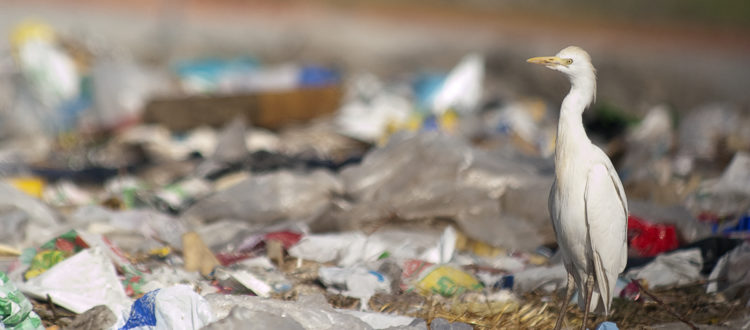Urban Bird Foundation Pursues Break Free from Plastic Pollution Act
Urban Bird Foundation announced today its official endorsement of the Break Free From Plastic Pollution Act of 2020. The Break Free From Plastic Pollution Act of 2020 had been officially endorsed by Urban Bird Foundation in the weeks leading up to the bill’s introduction today by Senator Tom Udall of New Mexico and Representative Alan Lowenthal of California.
“We are literally strangling and filling birds with bottle caps, cigarette lighters, bags, straws, bottles, fishing line and any other imaginable piece of plastic,” said Scott Artis, Executive Director of Urban Bird Foundation. “The global problem affects more than wildlife. Plastics have entered the human food chain through the water we drink and the fish we eat. The impact on human health is not yet fully known but we at Urban Bird Foundation see the impacts on birds frequently – most obviously through entanglements.”
The Break Free From Plastic Pollution Act will include the following elements:
Require Product Producers to Take Responsibility for Collecting and Recycling Materials: Producers of covered products (packaging, containers, food service products and paper, regardless of recyclability, compostability, and type of material, including plastic, paper, glass and metal) will be required to design, manage, and finance programs to collect and process product waste that would normally burden state and local governments. The legislation will encourage producers to cooperate with those who produce similar products through Producer Responsibility Organizations (PRO) to take responsibility for their waste and implement cleanup programs with Environmental Protection Agency approval.
Producers will invest in U.S. domestic recycling and composting infrastructure, cover the costs of waste management and clean-up, and promote awareness raising measures for covered products.
Require Nationwide Container Refunds: The legislation will institute a 10-cent national refund requirement for all beverage containers, regardless of material, to be refunded to customers when they return containers. Any unclaimed refunds will go to beverage producers to supplement investments in nationwide collection and recycling infrastructure. This legislation encourages states that have already implemented similar initiatives to continue their current systems if they match the federal requirements.
Source Reduction and Phase-Out Certain Polluting Products: Beginning in January 2022, some of the most common single-use plastic products that pollute our environment, cannot be recycled, and have readily available alternatives will be source reduced and phased out from sale and distribution. The prohibitions will apply to lightweight plastic carryout bags, food and drinkware from expanded polystyrene, plastic stirrers and plastic utensils. Straws will only be available upon request.
Carryout Bag Fee: The legislation would impose a fee on the distribution of carryout bags. The fee can be retained by retailers who implement a reusable bag credit program at their place of business. For fees collected by those who do not participate in a reusable bag credit program, the fee will be used to fund access to reusable bags as well as litter clean up and recycling infrastructure.
Minimum Recycled Content Requirement: Plastic beverage containers will be required to include an increasing percentage of recycled content in their manufacture before entering the market. Additionally, the EPA will be required to implement post-consumer minimum recycled content for other covered products after a review with the National Institute of Standards and Technology is completed to determine technical feasibility.
Recycling and Composting: The EPA will develop standardized recycling and composting labels for products and receptacles to encourage proper sorting and disposal of items that can be recycled or composted.
Plastic Tobacco Filters, Electronic Cigarettes and Derelict Fishing Gear: Following studies on the environmental impacts of plastic tobacco filters, electronic cigarette parts and derelict fishing gear, the relevant agencies will propose measures to reduce those environmental impacts.
Prevent Plastic Waste from Being Shipped to Developing Countries that Cannot Manage It: The bill prevents the export of plastic waste, scrap and pairings to non-OECD countries, many of whom have been a major source of ocean plastic pollution due to their inability to manage the waste.
Protect Existing State Action: The bill protects state and local governments to enact more stringent standards, requirements, and additional product bans.
Temporary Pause on New Plastic Facilities: The legislation gives environmental agencies the valuable time needed to investigate the cumulative impacts of new and expanded plastic-producing facilities on the air, water, climate, and communities before issuing new permits to increase plastic production. The legislation would also update EPA regulations to eliminate factory-produced plastic pollution in waterways and direct the EPA to update existing Clean Air and Clean Water Act emission and discharge standards to ensure that plastic-producing facilities integrate the latest technology to prevent further pollution.



Florida has Burrowing Owls in Cape Coral, which,supports and celebrates them. Osceola County has lost many B Owls due to vehicles running them over.
There seem to be nests on the northern section of the FL Turnpike (north of Orlando) before the Turnpike join with I-75. Since there are few “hills” in FL. the owls seem to like the somewhat steep sides of the roads (30 degree slope), as do the Gopher tortoises. The nests/holes get mowed regularly.